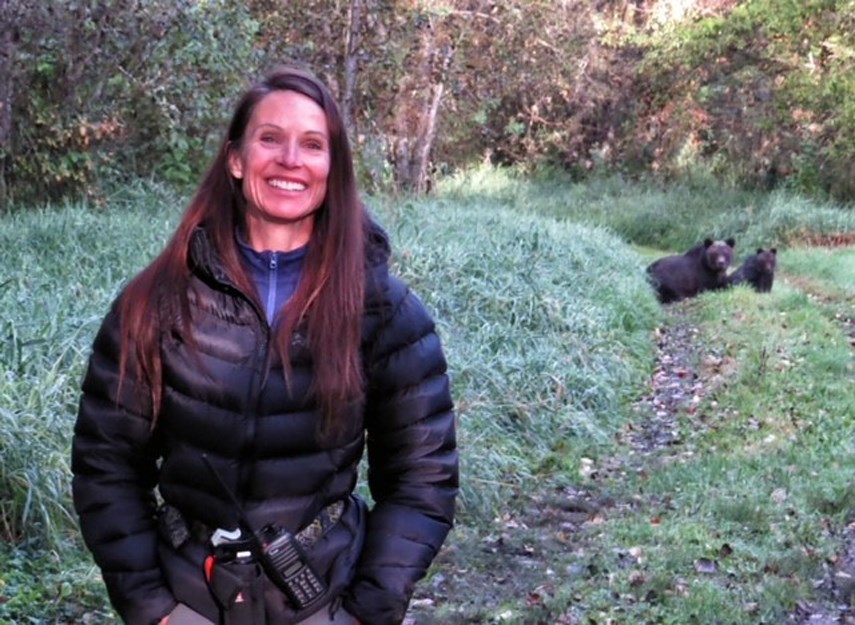My work with bears often puts me in a position where I feel the need to speak out. The current situation on the North Shore is one of those times. I have spent much of my life learning about bears from bears and will happily spend the rest of my life teaching people about what bears have taught me. I am honoured to be an educator and a consultant of bear behaviour and body language for North Shore Black Bear Society.
Recently the Conservation Officer Service set a trap for a young bear near Princess Park. I am disappointed they did not consult with the NSBBS in an effort to learn more about this bears life, motivation and history. The COS are not bear experts and by reaching out they could have learned more about this bear but sadly they choose not to.
A trap is once again set to kill a one of our community bears. This bear’s name is “Cowboy”, and we know him. As his name implies, he walks a little bow-legged and has an easy nature about him. He is likely about 4.5 years old and knows well how to get along with people. Last year upon our first meeting, we helped him understand the importance of listening to people when he is asked to leave a property. Now he willingly walks away to the forest when asked.
The bears who live in and around our North Shore communities typically are the more vulnerable population. That could include a mother and her offspring, a young or an old bear, or it could be a sick or injured bear looking for a safe place to heal. Rarely are these bears aggressive but instead trusting in our presence for a time, then most will leave once their needs are met.
Many people who have spent time around bears have witnessed their habit of using human presence or communities for protection. This is an intelligent strategy in avoiding a more dominant bear from harming them while they are vulnerable. As a bear viewing guide on land, every year I experience bears using my presence or the presence of my group for safety from other bears. I consider it an honour to help these animals out during the time of crisis.
Like us, bears are complex and live a complex life. We do not always consider who these animals are and what motivates them. We do not always think that a bear has a story. I can say in my experience, they have a story and it is not only food, and safety that motivate bears, but they are socially motivated as well. I have noticed through my time spent in the field, that bears are very committed to family, and to their friendships. They also have enemies in the bear communities in which they live. Bears have a complex system of the delivery of both punishment and reward. They have culture and hold close important knowledge and traditions that have been passed on to them from previous generations. Many people have watched as mother bears teach their offspring skills and understandings which, in turn, give these young bears a higher chance for survival. Bears learn well and they never forget. Their knowledge of their past dictates their actions in the future. They know who they can trust, and who they cannot. They know where they are safe, and where they are not.
All their senses come together to develop this level of awareness and discernment this accumulation of tradition and knowledge is passed down to their own offspring.
In the end, when we hear phrases like “A fed bear is a dead bear” or label bears as “food conditioned.” These words misrepresent bears completely as it suggests these animals are simple and cannot learn boundaries, and limitations. How did these animals survive hundreds and thousands of years of existence if they truly cannot learn?
“Habituation” is a troublesome label for a bear. Bears did not evolve to be a fearful animal. Running away in fear is not what bears do by nature. They evolved to be easy, social and, yes, very predictable animals. By nature, bears are trusting of their human community and that is why they live here.
Ellie Lamb is an award winning bear activist, guide and behaviour expert.



